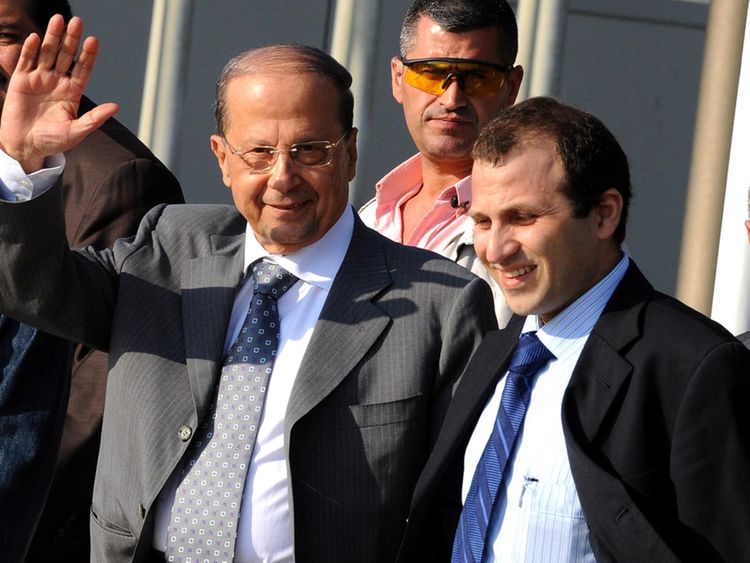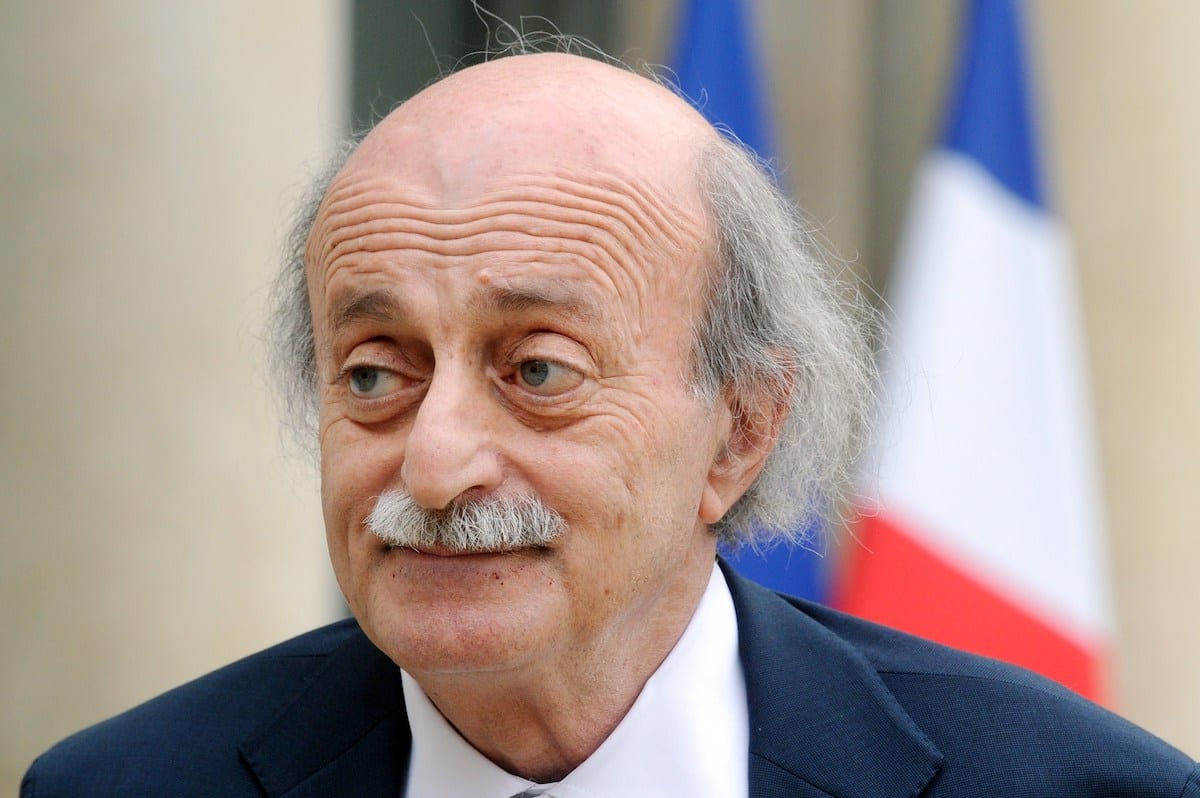by english.sawtbeirut.com — In his Sunday sermon from Diman, Maronite Patriarch Mar Bechara Boutros Al-Rahi said that Lebanon cannot live in accordance …

NNA – Free Patriotic Movement Chief, MP Gebran Bassil, stressed Saturday on the factor of “representation” as being the foremost characteristic of the future president of the republic. “The position of the president is linked to his powers and characteristics, particularly his representation,” he said, emphasizing that “the first and most important factor is his real and natural representation, i.e. his actual representation of the people,” which is embodied by a parliamentary bloc and a ministerial bloc that supports him and increases the strength of his powers and position. “Without this, the president would lose much of this power,” deemed Bassil. His words came following his visit to Al-Diman this afternoon, where he held a two-hour closed meeting with Maronite Patriarch, Cardinal Bechara Boutros al-Rahi, touching on the latest developments prevailing in the country.
Bassil continued to stress that "the president of the republic must be part of his environment and its conscience, and a good representative of it,” while emphasizing that “he is the president of all the Lebanese, so he must enjoy the endorsement of the majority of the Lebanese.” “The decision on this issue must be in the first place with the actual representatives, and this is an occasion for Bkirki to take any possible initiative and we support it in carrying out its endeavors,” the MP went on. “Today, as you know, is the season of specifications, with the bazaar on specifications including the future president’s character, patriotism, humanity, competence, understanding, knowledge...as well as his concept of the state and the state’s monetary and financial economy in this circumstance and his ability to communicate abroad and internally,” Bassil continued. “However, the first and foremost characteristic, I would even say the last and most important, is representation; otherwise, why democracy or the elections?” he reiterated.

by english.alaraby.co.uk -- Lebanon saw an outpouring of sympathy on Thursday for an unlikely recipient: a bank robber and hostage-taker. Bassam Al-Sheikh Hussein entered a Federal Bank of Lebanon branch in Beirut and pulled out a shotgun when he was told he could not access the money in his bank account he needed to fund life-saving medical care for his family. He resorted to holding six bank employees hostage to gain access to his life savings. Though his methods were shocking, people gathered outside the bank and online expressed compassion for the 42-year-old, who they said was pushed to violence by Lebanon's endemic corruption.
What happened?
Hussein entered a Federal Bank of Lebanon branch in the Hamra neighbourhood of west Beirut just before noon on Thursday. He demanded $200,000, from his own bank account. When employees refused the request, Hussein began screaming that his relatives were in hospital and pulled out a gun, according to videos circulating on social media. The 42-year-old threatened to set himself on fire unless he was allowed to take his money. Six hostages were stuck in the building, including one customer and five employees, Reuters reported. The stand-off ended after six hours with the hostage-taker in police custody after he was promised $300,000 of his savings. No one was hurt. Dozens of protesters gathered to support Hussein amid the hostage-taking situation, exclaiming that corrupt politicians and bankers had pushed individuals to the brink. "For the Lebanese people and for the depositors, this man is a hero," Hassan Moghnieh from the Lebanese Depositors Association told Al Jazeera. "His father is in the hospital. The bank is giving him 8 million (Lebanese pounds) per month, which means less than 300 dollars while he is paying for electricity 10 million a month. How can he survive? How can he survive?", he asked.
According to the Lebanese Depositors' Union, the father of the gunman requires $50,000 for medical treatment. Hussein was only able to withdraw $1,000 from his account over the last three years due to strict withdrawal limits in Lebanon, despite having around $209,000 in deposits. "Riad Salameh, any drop of blood that falls inside is on you," said the crowd of protesters, referring to the widely-condemned central bank governor who Lebanese accused of enriching himself and his friends while normal citizens suffer.

Beirut - Mohamed Choucair -- aawsat.com -- The head of the Progressive Socialist Party, Walid Jumblatt, and political advisor to Hezbollah's Secretary General Hussein Khalil have discussed several problems facing Lebanon, mainly the upcoming presidential elections. The meeting was attended by PSP officials MP Wael Abu Faour and former Minister Ghazi al-Aridi, and top Hezbollah official Wafiq Safa. Sources told Asharq Al-Awsat that discussions focused on their differences over Hezbollah's weapons and Lebanon’s defense strategy. According to the sources, the meeting also reviewed the presidential elections, but no candidates were discussed. They instead addressed Jumblatt's rejection to support a candidate backed by Hezbollah. They pointed out that Jumblatt called for electing a president who is not provocative and is accepted by all political parties.
The sources quoted Khalil as saying that Hezbollah seeks to form a new government and elect the president on time after Jumblatt warned that the country cannot afford a presidential vacuum. The term of President Michel Aoun will end in October 2022. During Thursday’s meeting, the PSP chief addressed the issue of Hezbollah sending drones over the Karish field and asked whether it was an Iranian message to improve the terms of its negotiations on its nuclear program. Hezbollah said in July it had sent three unarmed drones towards the Israeli Mediterranean gas rig, which the Israeli military said it had intercepted. Khalil stressed that Iran does not need drones to improve its position and that the unmanned aircraft aimed to improve Lebanon's position in the US-mediated negotiations with Israel on the maritime border demarcation.
Khazen History


Historical Feature:
Churches and Monasteries of the Khazen family

St. Anthony of Padua Church in Ballouneh
Mar Abda Church in Bakaatit Kanaan
Saint Michael Church in Bkaatouta
Saint Therese Church in Qolayaat
Saint Simeon Stylites (مار سمعان العامودي) Church In Ajaltoun
Virgin Mary Church (سيدة المعونات) in Sheilé
Assumption of Mary Church in Ballouneh
1 - The sword of the Maronite Prince
2 - LES KHAZEN CONSULS DE FRANCE
3 - LES MARONITES & LES KHAZEN
4 - LES MAAN & LES KHAZEN
5 - ORIGINE DE LA FAMILLE
Population Movements to Keserwan - The Khazens and The Maans
ما جاء عن الثورة في المقاطعة الكسروانية
ثورة أهالي كسروان على المشايخ الخوازنة وأسبابها
Origins of the "Prince of Maronite" Title
Growing diversity: the Khazin sheiks and the clergy in the first decades of the 18th century
Historical Members:
Barbar Beik El Khazen [English]
Patriach Toubia Kaiss El Khazen(Biography & Life Part1 Part2) (Arabic)
Patriach Youssef Dargham El Khazen (Cont'd)
Cheikh Bishara Jafal El Khazen
Patriarch Youssef Raji El Khazen
The Martyrs Cheikh Philippe & Cheikh Farid El Khazen
Cheikh Nawfal El Khazen (Consul De France)
Cheikh Hossun El Khazen (Consul De France)
Cheikh Abou-Nawfal El Khazen (Consul De France)
Cheikh Francis Abee Nader & his son Yousef
Cheikh Abou-Kanso El Khazen (Consul De France)
Cheikh Abou Nader El Khazen
Cheikh Chafic El Khazen
Cheikh Keserwan El Khazen
Cheikh Serhal El Khazen [English]
Cheikh Rafiq El Khazen [English]
Cheikh Hanna El Khazen
Cheikha Arzi El Khazen
Marie El Khazen